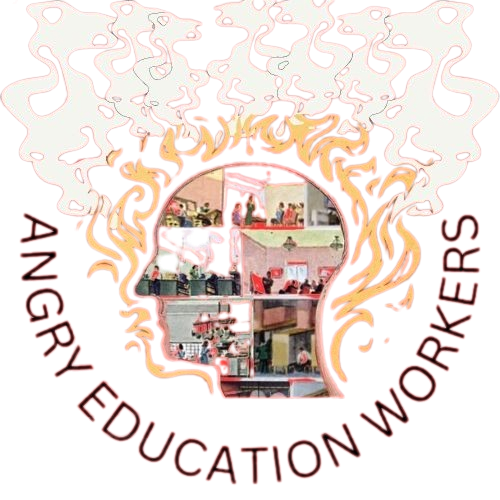Towards a Revolutionary Union Movement, Part 3: Against Class Collaboration
We need a new, revolutionary type of unionism to confront the power of the employing class. In part three of this series, we delve into the first of nine traits that distinguish revolutionary unions.
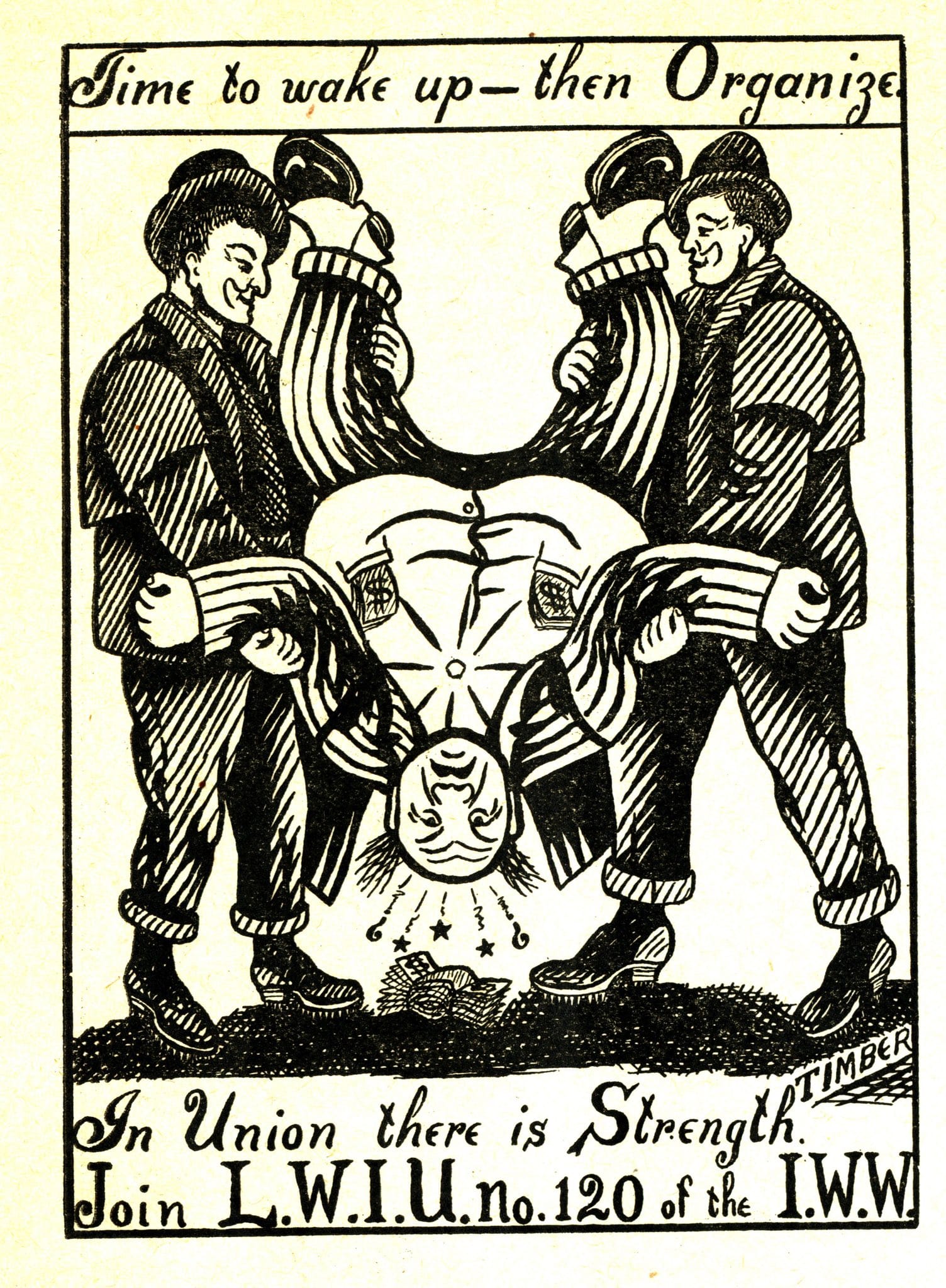
This is part three of a series. Today’s post is a little shorter, but we hope it’s still an enjoyable read. You can read parts one and two of “Towards a Revolutionary Union Movement” here:
Characteristics of Revolutionary Unions
There are nine intersecting characteristics we have identified that set revolutionary unions apart from liberal or progressive unions. In addition, a few themes underlie each of the features of revolutionary unions, such as worker solidarity, militancy, the need for working class self-leadership, membership development through training and political education, and above all: courage. We must mean it when we proclaim that “the emancipation of the working class must be the work of the working class itself.”
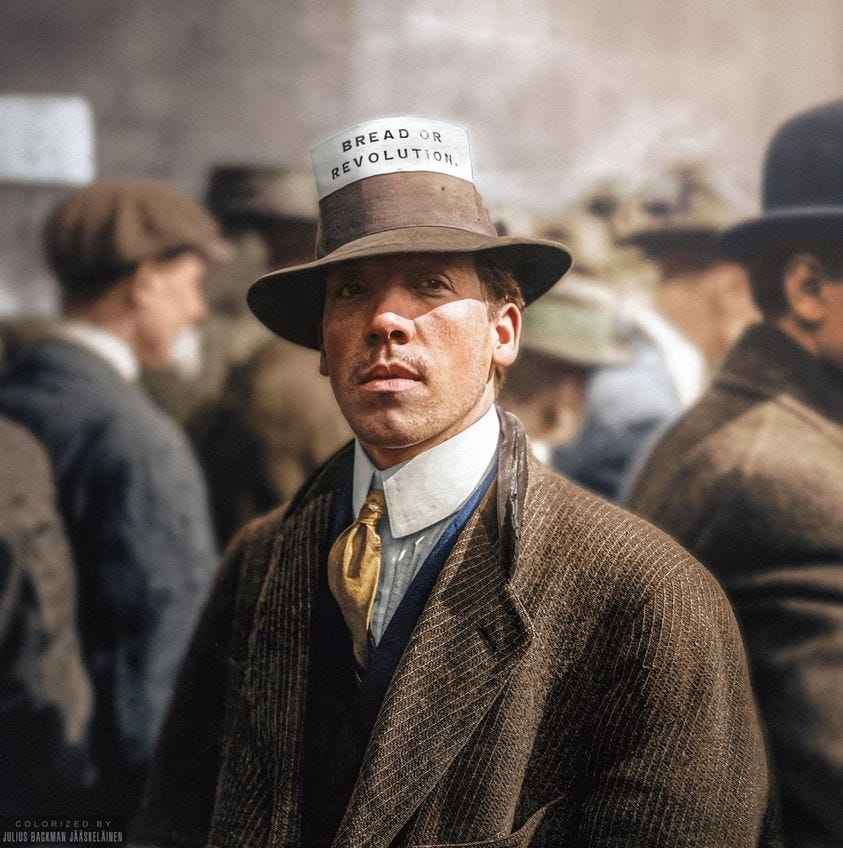
Against Class Collaboration
Revolutionary unions reject collaboration with the employing class. Looking at the IWW constitution, this rejection of class collaboration is literally the first sentence of the preamble: “The working class and the employing class have nothing in common.” Seeking labor peace is futile. Conflict between employers and employees is fundamental to capitalism, there is no resolving it without overthrowing the system entirely. The much vaunted social democratic compromise between unions and bosses during the “Golden Years of Capitalism” lasted a maximum of barely 35 years. By 1981, the rich had decided the working class was too powerful and well-off, and that it was time to go on the offensive to change that. Our present situation is the result of more than 40 years of class war waged from above. Why would we collaborate with a class of people who rob us for as much as they can get away with?
That’s not even considering the climate crisis, mass death events like pandemics, and the growing risk of nuclear war. There is no solution to any of these existential threats under capitalism, because capitalism itself is at the root of them. The employing class is risking the entire planet for its short term profits.
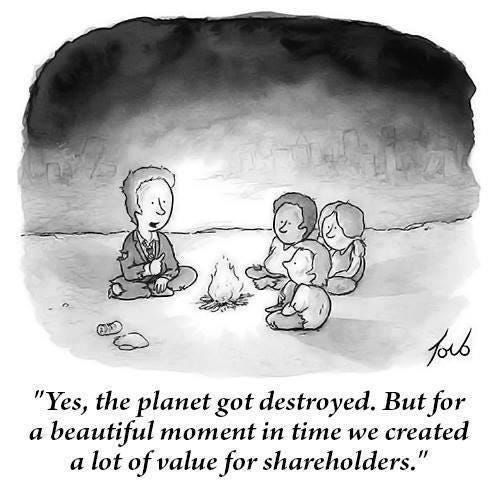
To use a cliche, the abuse and exploitation are a feature, not a bug. Forget all the nonsense most economists spew, it’s nothing more than noise that obscures the reality of our situation as workers. A proper analysis of societal relations under capitalism reveals that at its core, the relationship between capital and labor is one of domination and subservience. Joe Burns concisely cuts to that core: “But what is wealth? It is not something you can hold in your hand. It is a social relationship—the ability to command others. It is power.”
Our society possesses tremendous powers of production. The labor of the working class produces and reproduces our entire world—feeding, clothing, educating, and equipping all of humanity with literally everything. We create abundance, there are more than enough resources for every person on the planet to live with dignity and in freedom. Production is essentially socialized. Yet vast swathes of the population suffer deprivation and increasing exploitation. Meanwhile, the industries and public institutions that are supposed to serve society’s needs are killing us and the planet. A tiny fraction of the populations sits on trillions of dollars of wealth and own their respective nation-states—which themselves stole their respective societies’ ability to self-govern. Capitalism’s court intellectuals try to divert our attention to other causes, but at the root of it all is capitalist social relations. They produce a conflict between our collective, specialized production processes and the extraction of profit from the surplus labor of workers. Simultaneously, they pit us against each other and force us to beg for scraps in the form of temporary concessions. There is no reforming such a system.
Instead, we must remain steadfast and open about our objective, which is the overthrow of capitalism and the establishment of industrial democracy (AKA economic democracy). Industrial democracy is socially useful production by and for “associations of free and equal producers”. Our revolutionary unions “must challenge the very basis of this unequal system,” and build the organizational capacity to “take on capital on a grand scale”. We don’t want a fair day’s wage for a fair day’s work, we want wage labor abolished entirely. We know better than to expect those with power to give it up willingly, they will fight us at every turn. Therefore, we must think and act strategically.
The capitalists act as a class, even if they’re divided along factional lines. So should we. Our role is to set off an ever-expanding struggle across the industries of capitalist society. For example, one of the early IWW’s affiliates was the Lumber Workers Industrial Union, which used direct action tactics to exercise “job control.” Across much of the Pacific Northwest of the US, IWW union halls effectively took control over the hiring of workers away from bosses—and shut out anti-union workers entirely. Once we take one thing from the employing class, we take another, and another, until we who have been nothing for millennia are everything once again. A modern equivalent would be an apparatus of “professional education” controlled by an industrial union administration of education workers in schools, daycares, libraries, museums, expositions, archives, galleries, and art facilities.
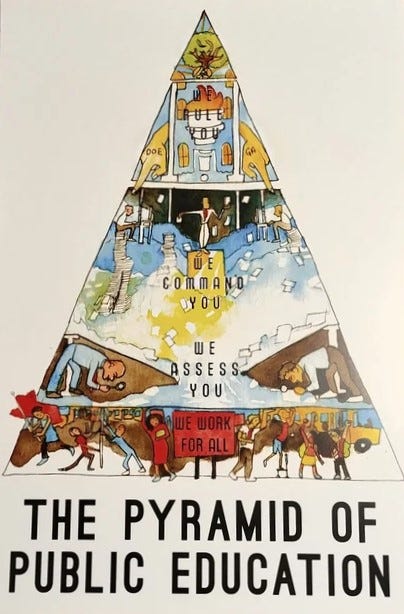
Through direct action we can construct an association of free and equal producers within the shell of the old society.
That’s it for this week. Come back for part four, which argues that revolutionary unions must prefigure the futures they seek to create, next Sunday!
Who are the Angry Education Workers?
This is a project to gather a community of revolutionary education workers who want a socialist education system. We want to become a platform for educators of all backgrounds and job roles to share workers’ inquiries, stories of collective action, labor strategy, theoretical reflection, and art.
Whether you’re interested in joining the project, or just submitting something you want to get out there, get in touch! All levels of involvement are welcome. Burnout culture is bullshit.
Reach out to angryeducationworkers@protonmail.com or over any of our social media. You can also contact us on the signal by reaching out to proletarianpedagogue.82.
Support Our Work
All of our work is freely available, but if you like what we do and want to support us, please consider throwing a little donation our way! It helps us cover the costs of printing, hosting webpages, and supplies.
